
Friends, we remind you that we have a super handy iOS app that is available in the App Store
Download, try and leave your feedback!
To begin with, let’s look at why people are even thinking about moving to Italy.
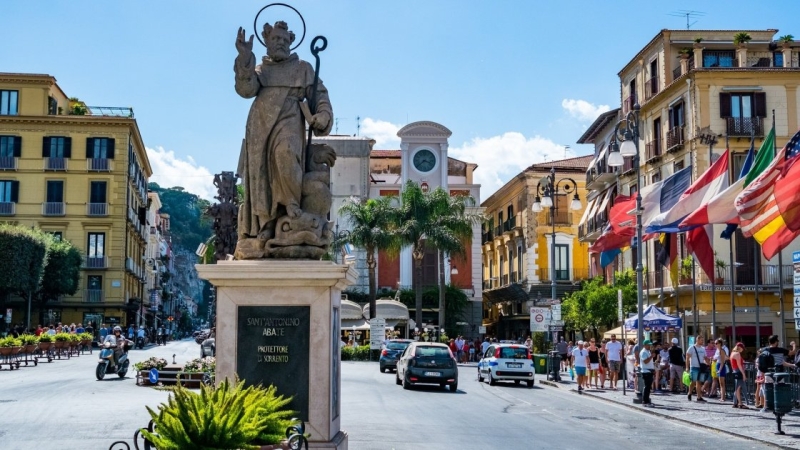
The author of the photo is cjthorose
So, the 5 most common reasons to immigrate to Italy:
- An incredibly beautiful country with a pleasant climate and a measured lifestyle, which many people are very impressed with;
- Stable economy and social guarantees (for example, free medicine);
- Loyalty to immigrants — benefits for buying real estate, the opportunity to establish your own business or get a job;
- Easy to learn Italian;
- There are many interesting places from the point of view of tourism in each region.
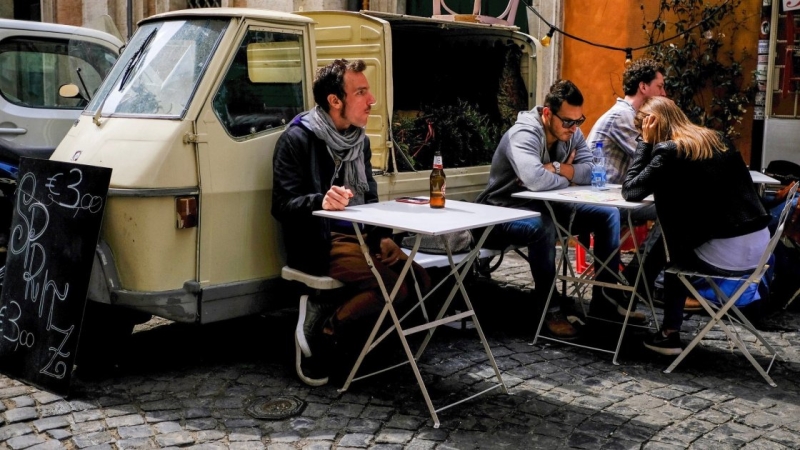
The author of the photo is rkendrick
Firstly, if you are not going to move to Italy permanently, but simply want to spend an unlimited amount of time in this country (recall that a biometric passport, like the Schengen visa, allows you to stay in the territory of EU member states for no more than 90 days in half a year), you just need to apply for a type D national visa.
An Italian type D visa entitles you to a long-term stay in the country. You can get it:
Judging by this list, the easiest way is to find a relative or marry/marry a local; get a job or buy a property in Italy. If you have managed to obtain such a visa, the following steps are simple: first you apply for a residence permit, and then for Italian citizenship. After a week of staying in Italy with a type D visa, you can apply for a residence permit (residence permit). You can submit a request at any local questura (police department in Italy). There are two types of residence permit in Italy: paper and plastic. But the grounds for obtaining it are still the same — work, study, family reunification, political asylum or choosing Italy as a place of residence with sufficient funds.
You can book a hotel in Italy with a discount of up to -65% on the website.
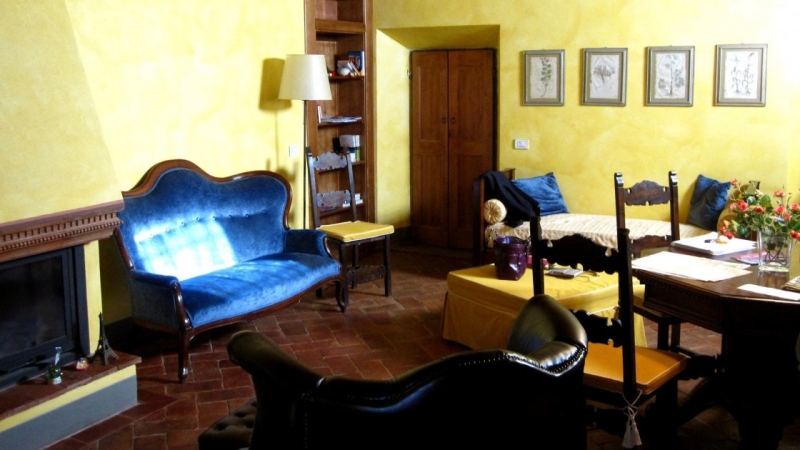
Photo author – Michael Lambing
A residence permit in Italy is given for a period of 6 months to 2 years, depending on the reason for your stay in the country. If you do decide to move to Italy for permanent residence, you will need to obtain an appropriate permit, which is provided only to those who have lived in Italy for at least 5 years. That is, you will need to apply for a residence permit at least three times. And here attention: Permanent residence cannot be obtained:
- Those who received a residence permit in connection with long-term studies (research, internship);
- Those who have applied for political asylum and received refugee status;
- Holders of a temporary protection residence permit, or who received a permit for humanitarian reasons;
- Consuls and diplomats.
That is, from the previous list, only family reunification, work and the choice of Italy as a place of residence remain (which entails buying real estate or having an impressive bank account). With the right to permanent residence, you are, in fact, already an Italian citizen, the only difference is that you do not have the right to vote. To apply for full citizenship, you need to live in Italy for two more years. You may be denied citizenship if:
- You have not been in the territory of the European Union for 12 months;
- You have not been in Italy for the last 6 years;
- You fraudulently obtained permanent residence;
- You simultaneously became the owner of permanent residence in two European countries;
- You were deported.
Of all the possible reasons for obtaining a permanent residence permit in Italy or citizenship, we can only help with work and buying real estate. A decent bank account can only be inherited or earned. And you can find (or create) family ties 😉 by yourself.

The author of the photo is Ediscover
As for finding a job in Italy, things are tight. Some ten years ago, many people went to this country to quickly find work and stay in Europe. Now it has become almost unrealistic: Italians themselves are suffering from unemployment.
Therefore, we advise you to find a job first, and then go and try to get a residence permit. You can find a job in Italy through special agencies (check them several times), through friends or by direct hiring to a specific company. Before signing a contract with someone, make sure that you can use it to obtain a residence permit.
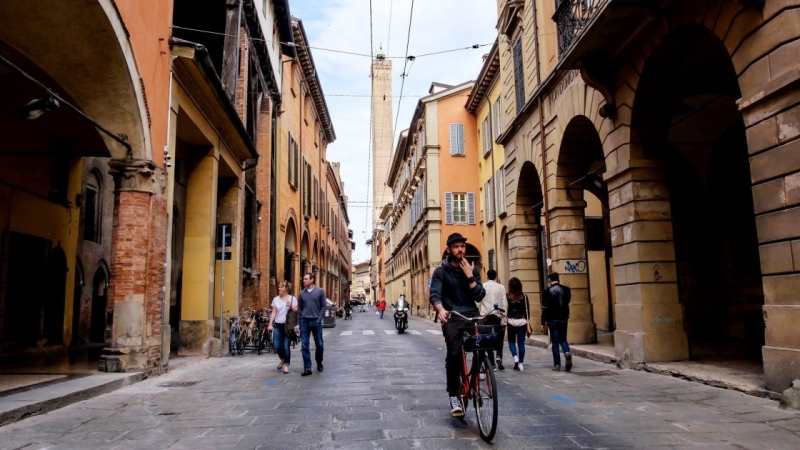
The author of the photo is Massimo Battesini
Things are better with buying real estate in Italy than with work — if only there were funds! There are many agencies that deal with houses and apartments in Italy. You can search and make deals with their help, having previously checked and read real reviews about their work.
The price level of real estate in Italy is approximately as follows:
- Apartment in Rome — from €130
- Apartment in Milan — from €85,000
- Apartment/villa in Florence — from €210,000
- Apartment in Venice — from €280 000
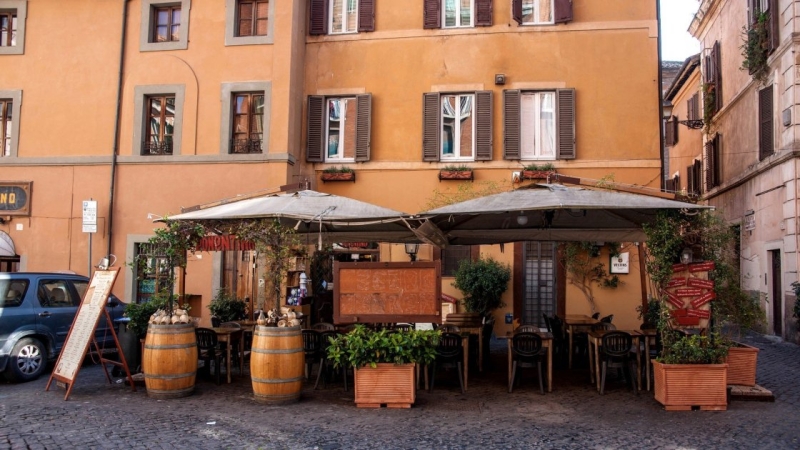
The author of the photo is jinxsi1960
When buying a property in Italy, you will need to pay taxes. When buying from a private person, the registration fee is 7% of the cost of an apartment or house, the mortgage fee is 2%, the cadastral fee is 1%. When buying from a legal entity, VAT is 10% of the cost of an apartment or house, registration fee is €168, mortgage fee is €168, cadastral fee for the renewal of property is also €55.
If you were not scared by the previous points and you still intend to move to Italy, be prepared for the local rather high prices. Here are the national averages:
- Dinner at an inexpensive restaurant — €15
- Coffee in establishments — €1.56
- A liter of milk — €1.45
- A dozen eggs — €3.44
- A kilogram of chicken — €10.58
- A bottle of wine — €6
- Transport fare — €1.70
- Taxi ride (one kilometer) — €1.44
- Rent a studio apartment (not in the center) — €578
- Utilities in a two—room apartment – €198.56
- Mobile tariff for a month — €13.53
- Going to the cinema — €9
- The cost of jeans is €77
- The cost of shoes (sports) is €84
We found out the average costs using Numbeo.
Get travel insurance abroad in a couple of clicks!
Find flights to anywhere in the world at the best prices on avia.tripmydream.com
